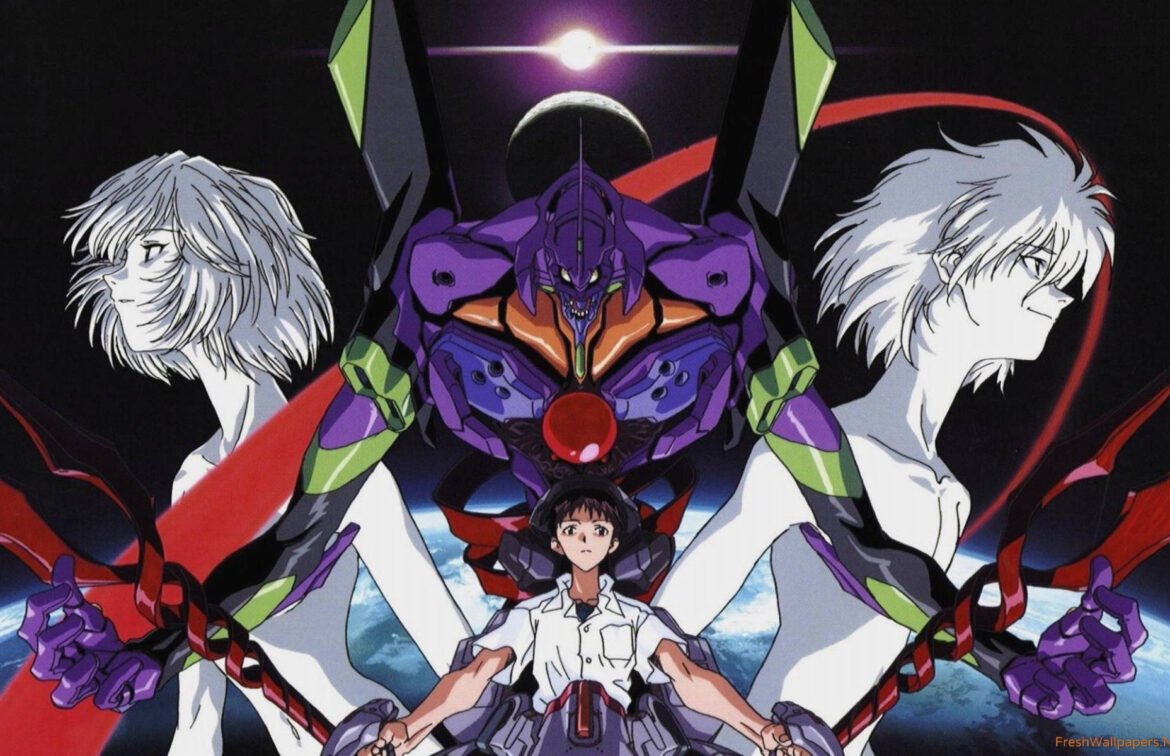Synopsis
“Neon Genesis Evangelion” follows the story of Shinji Ikari, a teenager who is recruited by his estranged father to pilot a giant mecha known as an Evangelion. Tasked with protecting humanity from mysterious beings called Angels, Shinji and his fellow pilots navigate a world filled with existential dread, complex human connections, and psychological turmoil. Since its release in the 90s, Evangelion has become a cornerstone of anime, known for its profound narrative, symbolic depth, and emotional resonance.
Groundbreaking Animation and Visuals
The animation quality throughout the series is exceptional, maintaining a high standard across its 26 episodes. The series excels in both its depiction of epic battles and the more mundane aspects of daily life, showcasing the versatility and skill of the animators. The battles between the Evangelions and Angels are particularly noteworthy, combining fluid motion with intricate detail to create truly spectacular scenes.
Deep and Complex Narrative
The true brilliance of Evangelion lies in its narrative and character development. The story centers around Shinji Ikari, who struggles to find his place in a world that seems indifferent to his existence. This personal journey is intertwined with the larger plot of humanity’s fight for survival, creating a layered and emotionally charged narrative. The series does not shy away from exploring dark and complex themes, such as loneliness, depression, and the human condition, making it a thought-provoking and sometimes challenging watch.
Rich Character Development
The characters in Evangelion are richly developed and deeply flawed, which adds to the realism and emotional impact of the story. Shinji’s journey from isolation to finding a sense of belonging, only to have it stripped away again, is particularly poignant. The supporting characters, including the enigmatic Rei Ayanami and the fiercely independent Asuka Langley Soryu, each bring their own struggles and complexities to the narrative.
Symbolism and Philosophical Themes
One of the most striking aspects of Evangelion is its use of symbolism and philosophical references. The series is packed with religious imagery, psychological theories, and philosophical musings, inviting viewers to ponder the deeper meanings behind the story. This intellectual depth sets Evangelion apart from many other anime, making it a series that rewards multiple viewings and in-depth analysis.
Soundtrack and Atmosphere
The soundtrack of Evangelion is another standout feature, with its iconic opening theme “A Cruel Angel’s Thesis” remaining a fan favorite. The music throughout the series enhances the emotional impact of the scenes, with a mix of haunting melodies and powerful orchestral pieces.
Conclusion
“Neon Genesis Evangelion” is a masterful blend of action, drama, and intellectual depth. Its complex characters, innovative narrative, and rich symbolism have cemented its place as a landmark in anime history. While its challenging themes and uneven pacing may not appeal to everyone, it remains a must-watch for those seeking a profound and transformative viewing experience. Evangelion is not just an anime; it’s a journey into the depths of the human psyche, one that continues to resonate with audiences around the world.



